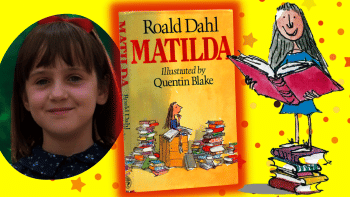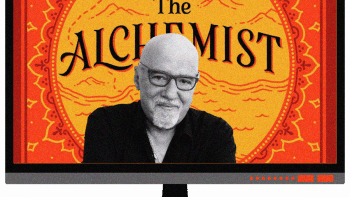Notes of a first-time English teacher

As the white hot sun pierced through the soufflé clouds on an afternoon a lifetime ago, my aunt and I leaned back a little too precariously on our rattan armchairs while talking about the allure of academe. My aunt recollected about her days as a literature student at Dhaka University. Though reciting Byron under krishnochura blossoms and highlighting Maugham handouts in shocking pink during lit theory's close reading sessions had its perks, she let me know that the best parts of the experience were, undoubtedly, the teachers. The best storytellers made the finest teachers, she said.
My aunt's remarks and a reading of Roald Dahl's Matilda in the dingy old corner of a computer room in fourth grade made me expect a Mrs. Honey as a teacher; somebody with whom I could have tea, with my pinkies up. My first literature teacher, however, was only keen on shooting us dagger eyes and assigning us to make sentences with the dullest possible words. But fiery headed Anne from the Green Gables decided ceremoniously that she wanted to become a teacher, and so I too thought that teaching would be a sure fire way to be in the company of books, to gently nudge minds into the cult of libraries and red eyes which stayed open way, way past their bedtimes.
As my O' levels neared, my school (now in a different district), which had little to no affinity with the arts, suddenly welcomed a "hipster" of sorts. Our teacher sported a stache which rivalled Ringo's during the Beatles' SGT Lonely Heart Pepper era. Fresh from Pennsylvania and in his early twenties, he was in Bangladesh for a mini project to teach us creative writing. He sipped green juice from handmade bottles, wore corduroy trousers the shade of a dull tangerine, and often made us meditate while a deep, hypnotic, reverberating chant of "Om" played in the background. During one of his classes in the blaze of Rajshahi summer, while my back ached with sweat, he taught us to write using sensory details. I took that to heart.
When I enrolled in an English Department for my undergraduate studies, I finally found out just what my aunt had talked about. Our "History of England" classes ended during twilight hours. As the setting sun would cast the sky on fire, my classmates and I would be on our toes, voraciously taking in the stories our professor would weave—from Beowulf to Woolf, from the Viking conquests to the many exploits of the Tudor dynasty, from the making of Senecan tragedies to that of kitchen sink dramas.
Morning slots would be filled with Intro to Poetry classes. Our instructor assigned us to write meditations on crimson lipstick smirches and we spent hours pining over William Carlos William's sweet, oh so sweet, plums. Upon the wings of such pure and dear madness that was literature, years went by in a blur. We poured over theories and attempted to write postcolonial epic fantastical tales; coped with our personal time-tattered tragedies by opening up writing clubs which were much too keen on eating cheesecakes in every meeting. Our professors, their wisdom and infectious beauties, made the English Department nothing short of a utopia.
Then, somehow, I was blessed with the opportunity to sit on the other side of the table and teach as an adjunct faculty member in my own university. As I paraded through the halls in my mother's six yards of silk and got to control the temperature of the classrooms like a dictator, I felt I had reached the culminating chapter of my not too shabby bildungsroman. As the first week passed by in a haze of awkward introductions and queries which made me doubt the whole discipline of English Language Teaching, I drew upon a realisation. Even though I was benevolently hired to teach something that was equivalent to a condensed IELTS course, I was hell bent on injecting something from my own interests in it, to fill it up with poetic contemplations. This annoyed my students quite a lot.
Most students traced through familiar paths of Spark Notes and LitCharts to present their chosen text. But one particularly fit gentleman with a pair of furrowed eyebrows chipped in, saying that he will only complete his assignment of reading only one novel for the semester, if I were to find him something relating to his passions. Enthusiastically I replied, "sure", and proceeded to ask him about his interests. He stood quiet for a moment before replying with a grumble: "I do love lifting, so yeah something related to 'gymming'". He later chose Coelho's The Alchemist and in his presentation, let me know that it was a book which talked not of the "gymming" of the body but that of the soul. I couldn't help but feel a little satisfied with what I had set in motion.
Some students chose to present on Gothic classics like Frankenstein and Dracula and became impressively invested in the authors, and others unsurprisingly chose romances by Austen, declaring that a popular period drama, with its orchestral renditions of Bollywood numbers and pastel themes, had inspired them to do so. I rolled eyes and exasperated sighs followed.
Then, during a speaking assignment in an 8 am class, a student of mine told me about how, if she had all the money in the world, she would open a bakery for her mother because her mum was like "a little fairy who loved to make cakes". Her tenses were topsy turvy, her adjectives unkempt, and her expressions a tad bit whimsical for the classroom, but it was heartwarming to say the least. Other students followed on different days to talk about the moments when they felt seen, the exhilaration they felt when they took a wicket in a neighbourhood game of cricket; how they preferred jewel tones to neon because it gave them joy or how they diligently embarked upon the journey of discovering a viable alternative to plastic. They all had their own moments which were slowly developing into beautiful narratives, and I was fortunate enough to bear witness to it. In those moments, I could not really tell my students apart from my teachers.
Jahanara Tariq teaches English at Independent University Bangladesh (IUB).

 For all latest news, follow The Daily Star's Google News channel.
For all latest news, follow The Daily Star's Google News channel. 









Comments